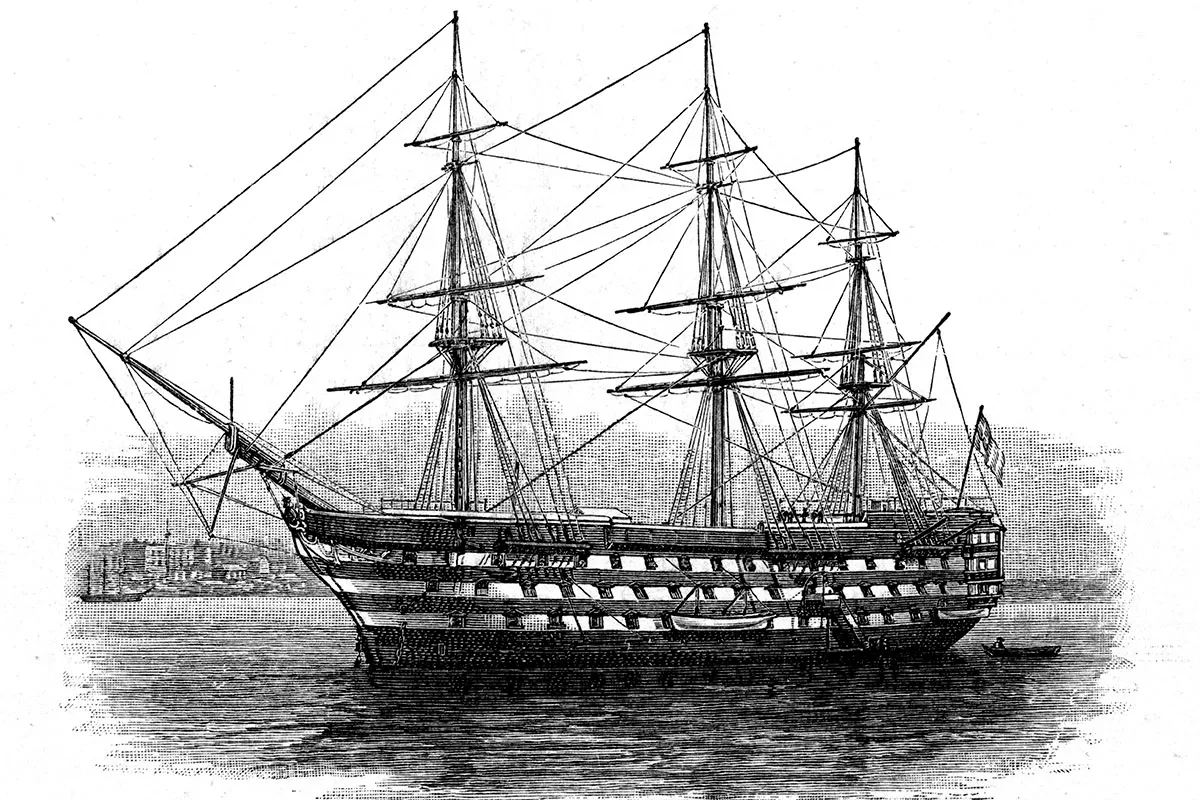A coastguard keeps careful watch over the busy Bristol Channel in late Victorian times. Tidal ranges and unpredictable weather can make the channel a perilous place, and it is his duty to help the victims of shipwrecks. The man entrusted with this awesome responsibility is Patrick Mulcahy, who grew up amid the Great Famine but managed to build a better life for himself.
He is the great great grandfather of Richard Mulcahy, from Newport, South Wales, who is very proud of his ancestor’s career. “Patrick was born in Ballinacurra, County Cork, in 1845,” Richard explains. “He is the furthest back of any of my Irish ancestors, so I really wanted to flesh him out.
“The 1861 census records reveal that Patrick was stationed aboard HMS Isis in Plymouth Sound. He was a Boy, Second Class, in the Royal Navy, and must have joined up at the age of 16.”
He must have joined up at the age of 16.
Patrick progressed to join the carpenter’s crew aboard HMS Aboukir, which sailed to Port Royal, Jamaica. “I’ve learned about life in the Victorian Royal Navy from various sources. Patrick would have crossed the Atlantic Ocean in cramped and dangerous conditions.
“In 1866, while stationed on Aboukir, he passed the Royal Navy examination to become a carpenter’s mate. This was a chief petty officer rank, and a senior non-commissioned role. I’d expected Patrick to be just another Royal Navy rating, so I was impressed that he held a key position of responsibility on several different ships.”
By 1869, Patrick had served on Nelson’s flagship HMS Victory when it was a shore station, and HMS Resistance, an armoured frigate that guarded approaches to the River Mersey. That same year, he married Catherine Jane Skally in Ballinacurra and they had at least seven children.

Richard found Patrick in the 1871 census working as a boatman coastguard, and living with his family at Hobbs Point, Pembroke Dock, south-west Wales. He was also promoted to carpenter, equivalent to warrant officer, which was the highest rank that he reached.
HM Coastguard was created in 1822 mainly to prevent smuggling, but it also helped the victims of shipwrecks. “Covering Milford Haven would have been challenging, with both Royal Navy and merchant vessels navigating the narrow waters.”
Coastguard stations generally included living accommodation, a watch room, a boathouse, a store and sometimes subsidiary lookout towers. The officers had limited equipment, and sailed in open boats amid dangerous currents.
The officers had limited equipment, and sailed in open boats amid dangerous currents
By 1874, Patrick was stationed at Minehead in Somerset, overlooking the busy Bristol Channel. “There were many wrecks, dismastings and other emergencies. Patrick would have risked his life at some point.”
His coastguard cottage in Minehead is now a holiday home, and Richard and his wife Sarah stayed there earlier this year. “To sit in the house where Patrick and Catherine raised their family, and where coastguards watched, made me feel very connected to them.”
Patrick retired from the Royal Navy and HM Coastguard in 1882, after 20 years’ service. At some point, he returned to Ballinacurra with Catherine, perhaps to rejoin their families.
Sadly, Catherine succumbed to tuberculosis in 1890 and Patrick died a year later of the same disease. They were both aged 46, which may seem young in modern times, but life expectancy for those born in Ireland before the Great Famine was only 38.
“I am amazed that Patrick could go from a small town in Ireland, where he saw the effects of the Famine, and work his way up to the level of non-commissioned officer. But most of all I am proud of how he simply kept going. If there was a ship called Perseverance, he should have been on it.”
Do you have a family story to share with Who Do You Think You Are? Magazine? Email wdytyaeditorial@ourmedia.co.uk for your chance to be featured in the mag!